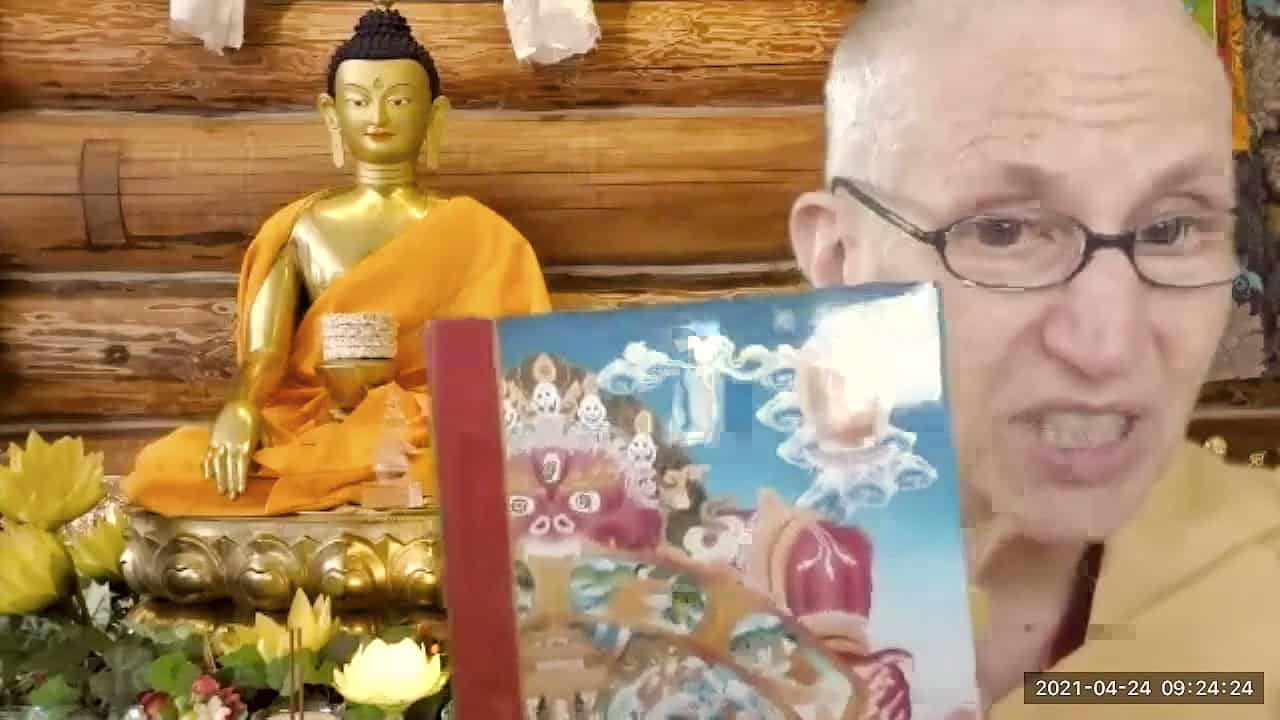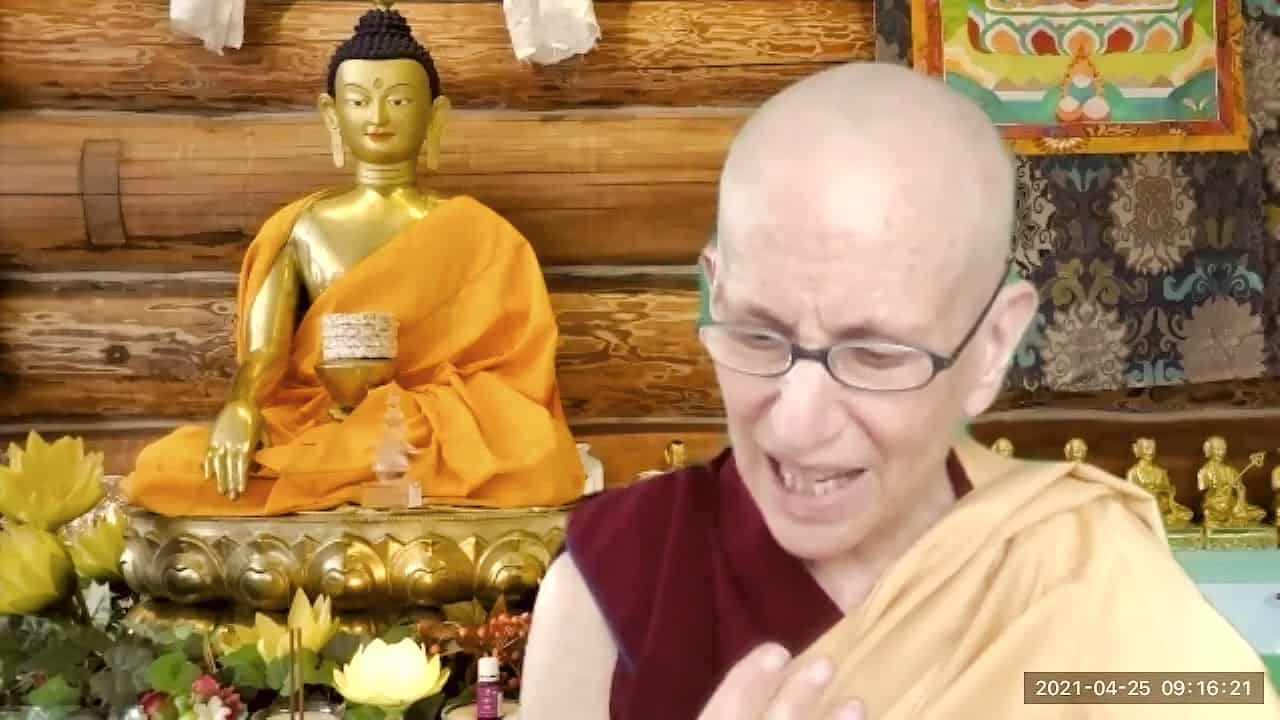Kinds of duhkha
15 Samsara, Nirvana, and Buddha Nature
Part of an ongoing series of teachings (retreat and Friday) based on the book Samsara, Nirvana, and Buddha Nature, the third volume in The Library of Wisdom and Compassion series by His Holiness the Dalai Lama and Venerable Thubten Chodron.
- Eight unsatisfactory conditions
- Birth, aging, illness, death, getting what we don’t want
- Getting separated from what we like, not getting what we want
- Five aggregates are the basis for unsatisfactory experiences
- Contemplating duhkha and developing the intention to become free
- Ten points describing the four characteristics of true duhkha
- Change, disintegration, separation in the present and in the future
- Aspects of being undesirable, fetters and bondage, welfare not being secure
- Examining the relationship between the aggregates and self
- Understanding duhkha through impermanence and selflessness through duhkha
Samsara, Nirvana, and Buddha Nature 15: Kinds of Duhkha (download)
Contemplation points
- What are the eight unsatisfactory conditions? Spend some time with each of these? Look at your own life and the world around you. What is your experience of these? Do you find that they pervade your (and everyone else’s) experience in samsara?
- The text says, “Clearly this situation is unsatisfactory. Our human potential must involve more than experiencing just this.” What are things you are doing in this life to realize that potential? Rejoice in these.
- Reflect on Asanga’s ten points, one by one, making examples of each in your life
- Over the course of one day in your life, observe/recognize coarse impermanence. Label it (for instance “the tea got cold”).
- Be aware and identify your thoughts when observing an object. We put all sorts of meaning on things. Give some examples from your experience.
- Focus on the conclusion that everything in cyclic existence is transient, unsatisfactory in nature, empty and selfless. Aspire to attain liberation.
Venerable Thubten Chodron
Venerable Chodron emphasizes the practical application of Buddha’s teachings in our daily lives and is especially skilled at explaining them in ways easily understood and practiced by Westerners. She is well known for her warm, humorous, and lucid teachings. She was ordained as a Buddhist nun in 1977 by Kyabje Ling Rinpoche in Dharamsala, India, and in 1986 she received bhikshuni (full) ordination in Taiwan. Read her full bio.


